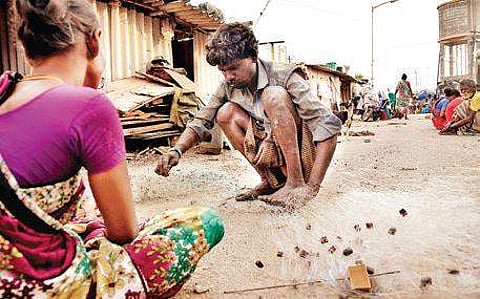

VILLUPURAM: For several years, the Irular tribal community in Villupuram has been demanding basic rights, community certificates, land pattas and family cards. Now, ahead of the elections, they hope yet again that their demands won’t fall on deaf ears. Villupuram has 68,326 Irulars, comprising 1.8 per cent of the district’s population, according to the 2011 Census.
More than 70% of them don’t have community certificates, as per data from Protection of Irular Tribal Rights Association founder Kalyani. In Villupuram and Kallakurichi (which used to be one district), 43% of Irulars don’t have land pattas, and 26% don’t have ration cards. “The literacy rate in the tribal community is just 38%, compared to the State’s 80%.
This is because of the lack of community certificates, which kept children from going to school. Nowadays, they go to school, but half drop out in high school as community certificates are mandatory for the board exams,” Kalyani explained. Last year, over 100 Irulars in Villupuram and Kallakurichi were given community certificates, which help them get education and reservation for jobs.
About 50 members of the community in Jakkampettai and Olakkur villages in Tindivanam were identified by officials after Express published a report on the settlements in 2020. Meanwhile, the lack of land pattas threatens the livelihood of Irulars. More than 50 per cent of the tribe’s members in the two districts still lack land pattas, said Rajesh Dheena, foundation of Tindivanam-based organisation STEPS.
As most Irulars don’t have proper houses, many of them still live in thatched huts in settlements encroaching waterbodies. A proper relocation of their settlements that enables dignified occupational and education opportunities is a far-flung dream for them. Between August 2020 and January 2021, STEPS provided free solar power to over 50 families from six Irular settlements in Gingee and Tindivanam taluks.
“In the 73 years since Independence, they hadn’t even enjoyed the benefit of electricity. Concrete house would be unimaginable. Though the Constitution promises all citizens the right to basic needs and a life of dignity, Irulars are left behind. Their huts are amid a jungle or beside a remote agricultural field along a highway. Their limited access to schools, hospitals and towns keeps social welfare schemes from reaching them,” said Dheena.